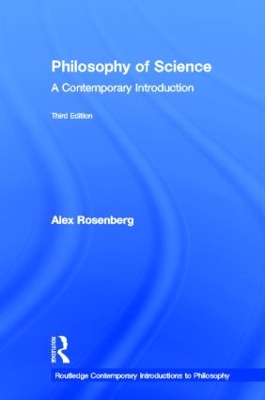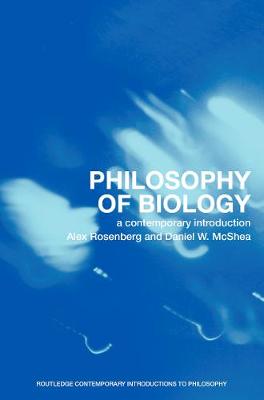Routledge Contemporary Introductions to Philosophy
1 primary work • 2 total works
Book 2
Any serious student attempting to better understand the nature, methods and justification of science will value Alex Rosenberg’s updated and substantially revised Third Edition of Philosophy of Science: A Contemporary Introduction. Weaving together lucid explanations and clear analyses, the volume is a much-used, thematically oriented introduction to the field.
New features of the Third Edition include more coverage of the history of the philosophy of science, more fully developed material on the metaphysics of causal and physical necessity, more background on the contrast between empiricism and rationalism in science, and new material on the structure of theoretical science (with expanded coverage of Newtonian and Darwinian theories and models) and the realism/antirealism controversy. Rosenberg also divides the Third Edition into fifteen chapters, aligning each chapter with a week in a standard semester-long course. Updated Discussion Questions, Glossary, Bibliography and Suggested Readings lists at the end of each chapter will make the Third Edition indispensable, either as a comprehensive stand-alone text or alongside the many wide-ranging collections of articles and book excerpts currently available.
Read our interview with Alex Rosenberg, What exactly is philosophy of science – and why does it matter? here: www.routledge.com/u/alexrosenberg
Is life a purely physical process? What is human nature? Which of our traits is essential to us? In this volume, Daniel McShea and Alex Rosenberg - a biologist and a philosopher, respectively - join forces to create a new gateway to the philosophy of biology; making the major issues accessible and relevant to biologists and philosophers alike.
Exploring concepts such as supervenience; the controversies about genocentrism and genetic determinism; and the debate about major transitions central to contemporary thinking about macroevolution; the authors lay out the broad terms in which we should assess the impact of biology on human capacities, social institutions and ethical values.

